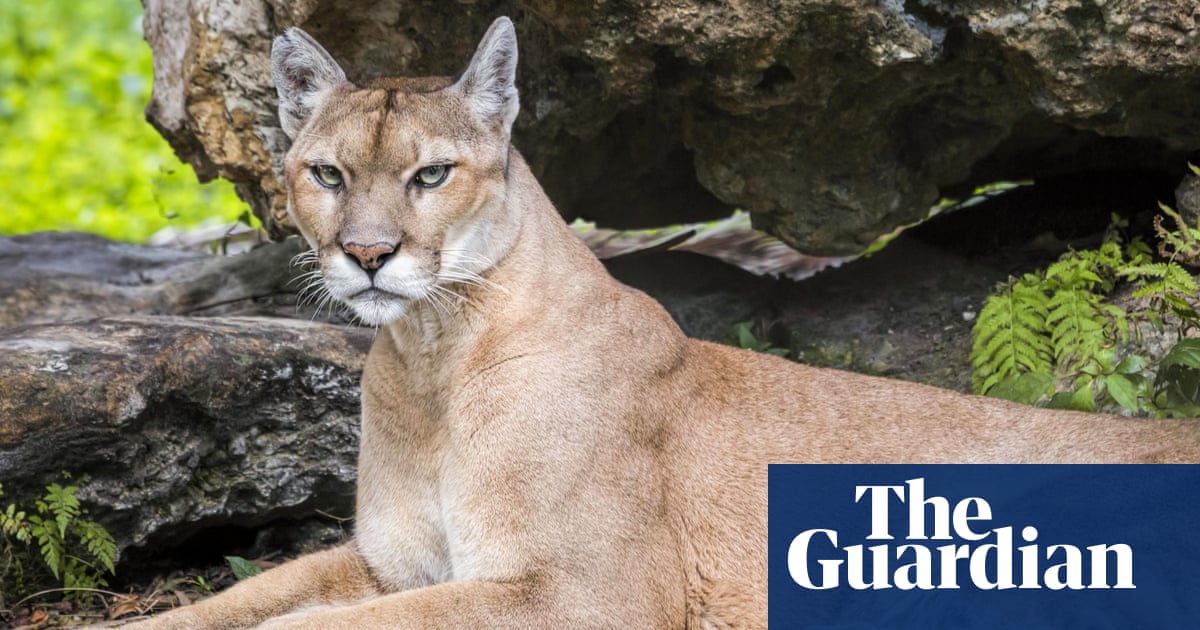Almost two centuries ago, Native American tribe members sought the protection of Florida’s Everglades during theSeminole warsas they hid from government forces seeking to banish them to Indian territories that later became Oklahoma.
Now, as the Trump administration continues its wholesale slashing of federal funding from conservation projects, the Miccosukee Tribe is stepping up to fulfill what it sees as a “moral obligation” to return the favor.
The tribe is looking to buy and protect environmentally significant lands, including some that onceprovided refuge, in a groundbreaking partnership agreement with the Florida Wildlife Corridor Foundation. The corridor is an ambitious project to connect 18m acres (7.3m hectares) of state and privately owned wilderness into acontiguous, safe habitatfor scores of imperilled and roaming species, including black bears, Key deer and Florida panthers.
Tribal officials say they will work with the foundation and other partners to “explore the acquisition and stewardship” of land within the corridor considered important to the tribe and its community.
“We have a constitutional duty to conserve our traditional homelands, the lands and waters which protected and fed our tribe since time immemorial,” said Talbert Cypress, chair of the Miccosukee Tribe headquartered on a 130-square-mile reservation west of Miami.
“[But] we’ve seen some sort of hesitancy a lot of times to commit to projects because of the erratic nature of how the government is deciding to spend their money or allocate money.”
The agreement, announced at a summit of corridor stakeholders in Orlando last week, comes as a study by the Native American Fish and Wildlife Society (NAFWS) found that 60% of federally recognized tribes havelost grants or other federal fundstotalling more than $56m since Donald Trump took office in January.
“These services are part of what we receive in lieu of all of the years of what we gave up, our land, our resources and sometimes, unfortunately, our culture and language,” Julie Thorstenson, executive director of the NAFWS,told the Wildlife Societylast month.
With government funding drying up, and the future ofexisting federal land stewardship agreementsuncertain because of Trump’s sustained onslaught on the National Parks Service, Cypress said tribe leaders had re-evaluated its work with other partners.
“For good reason, my predecessors had more of a standoffish approach. They went through a lot of the areas where they did deal with conservation groups, federal agencies, state agencies, pretty much not including them in conversations, or going back on their word. They just had a very different approach to this sort of thing,” he said.
“My administration has taken more of a collaborative approach. We’re engaging with different organizations not just to build relationships, but fix relationships that may have gone sour in the past, or were just non-existent.”
Cypress said the tribe, which already has collaborative or direct stewardship of almost 3m acres in the Everglades and Biscayne national parks, and Loxahatchee national wildlife refuge, was working to identify and prioritize land within the corridor of historical significance, and to “get those conversations going”.
He said: “Financially, the tribe will invest some money, but we’ll also be instrumental in finding investors, partners interested in the same thing, which is to conserve as much of our natural habitat as possible while making room for growth and development.
“We’ve shown we can do it in a sustainable way, and our voice can help in shaping the future ofFloridaas far as development goes because once a lot of the land gets developed we’re not going to get it back.
“We need to do it in a way where we benefit not just ourselves in the present, but for generations in the future as well.”
The Florida wildlife corridor was established in 2021 by lawmakers who approved an initial $400m for acquisition against a multi-year $2bn budget for land conservation. About 10m acres have been preserved, with another 8mconsidered “opportunity areas”in need of protection, and environmental groups warning large areas could still be lost to development.
The legislature, which isweighing cuts to corridor fundingas it attempts to balance state spending, has encouraged commercial investment and partnerships. At last week’s summit, the Disney Conservation Fund announceda $1m grantfor training conservation teams and expanding public access to trails and natural areas.
